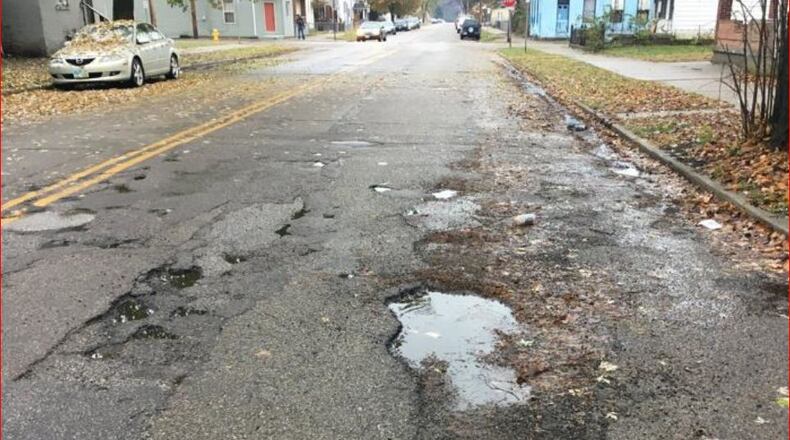If voters approve it next year, that levy would cost the owner of a home valued at $100,000 about $136.50 per year. The levy would raise about $3.1 million per year over 10 years before it would expire. City officials hope voters would be pleased with the results after those 10 years and renew the levy.
One thing the tax on license tags will do that the 2020 street-repair levy would not is pass some street-repair costs on to Hamilton residents who own vehicles but do not own homes or other property. Some homeowners had urged the council to find a way to charge citizens other than them for road repairs.
Council approved the tax with a 6-1 vote. Voting against it was Matt Von Stein. He asked how many other cities had approved the fee, but that information was not available.
The council held both of its required considerations of the ordinance on Wednesday because in order for the tax to be effective from 2020 onward, it had to be approved by July 1, under a new state law.
The new tax was allowed under House Bill 62, recently signed by Gov. Mike DeWine. City Finance Director Dave Jones told council that if state law allows it, he will create a special fund to receive the money, as a way to demonstrate to taxpayers that the $5 fee will be spent exclusively on road repairs.
‘This is a way that people other than homeowners can contribute to what homeowners are paying through a tax levy,” Mayor Pat Moeller said at an earlier meeting.
The city has said 70 percent of Hamilton streets are in fair to poor condition, with 50 percent of them rated as poor.
The street levy’s $3.1 million annually would let Hamilton repair up to four miles of streets and maintain as many as another four miles.
Hamilton has about 250 miles of streets, but when the number of lanes are considered, there are 550 miles of lanes on those streets, with some of those streets not having been repaved in 40 years.
When it comes to spending funds from the proposed street levy, council recently approved legislation calling for creation of a neighborhood formula to guide which streets are paved in each of the city’s 17 neighborhoods. If the levy is approved, each neighborhood will be given power to hold public meetings to determine which streets should get priority for funding.
Council has promised that street-levy funds will not be used “immediately adjacent to the Spooky Nook at Champion sports complex” and should be focused on residential streets.
About the Author
